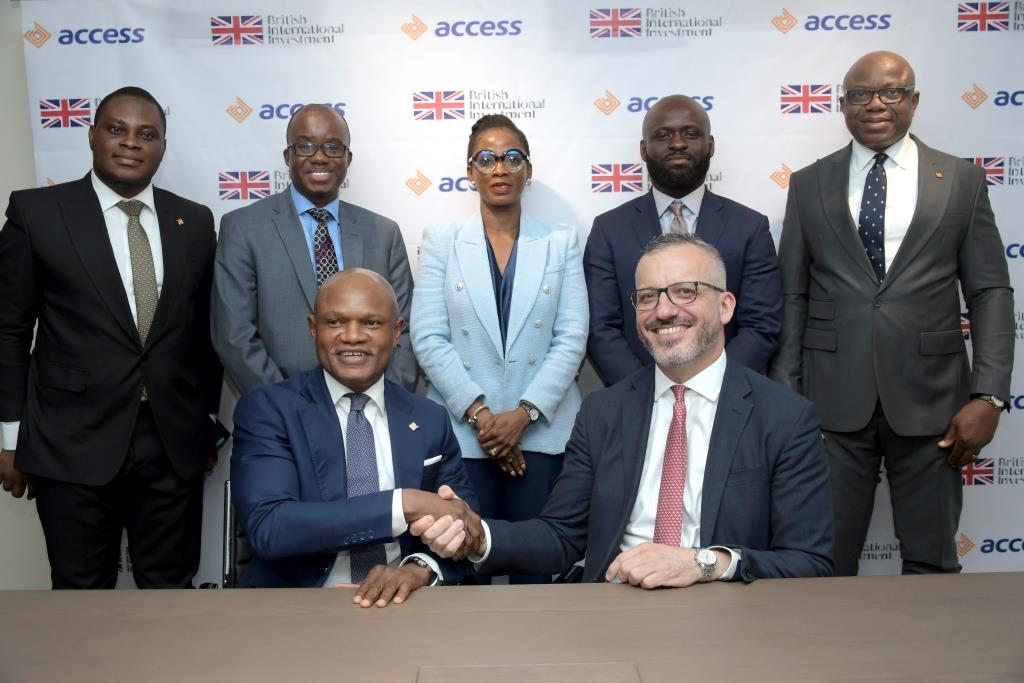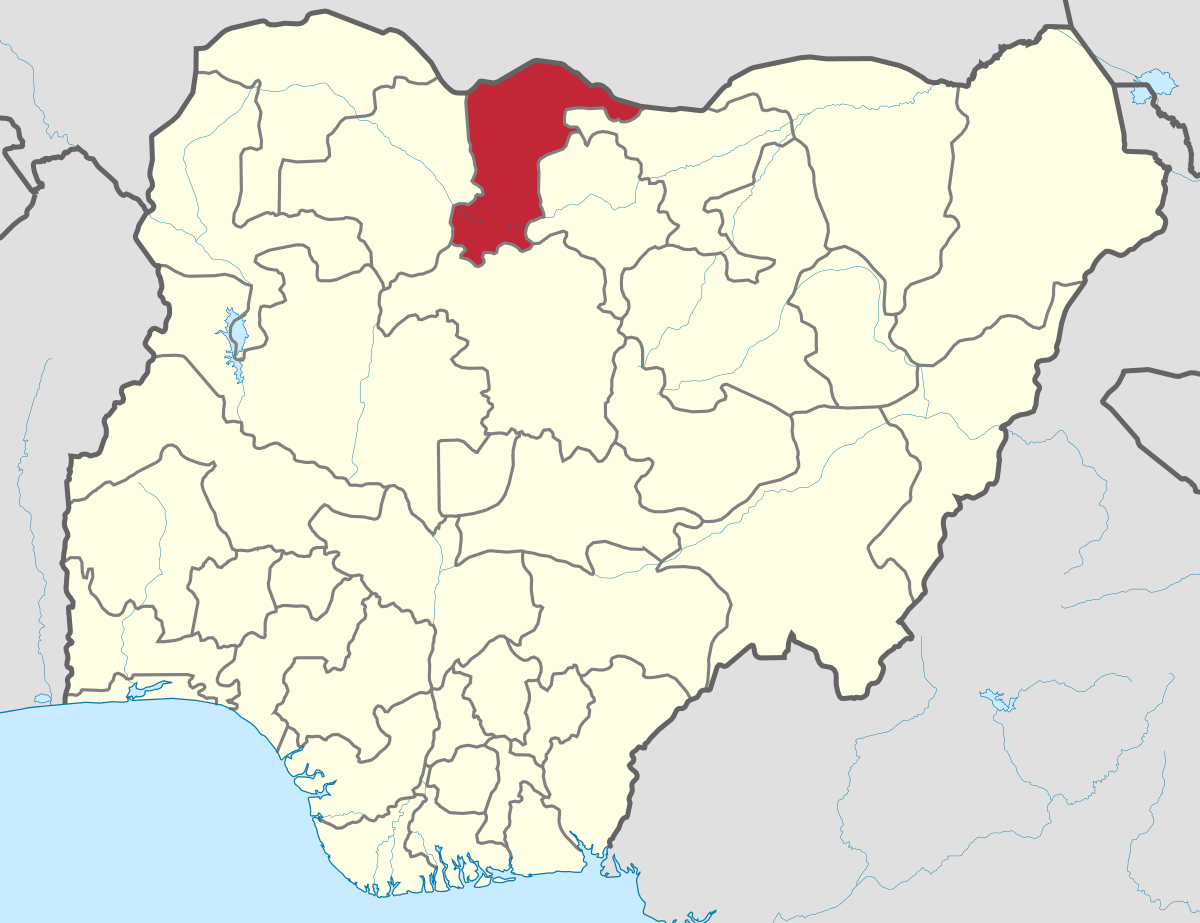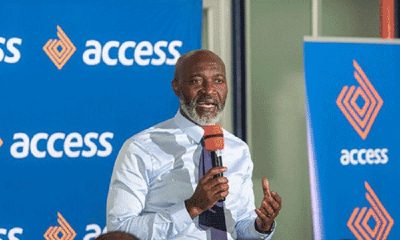Banking
Access Bank Gets $60m Loan to Facilitate Trade, Plug Forex Supply Gap

By Aduragbemi Omiyale
A $60 million trade finance facility to be used to stimulate African trade volumes by $90 million has been secured by Access Bank Plc.
The fund was taken from the British International Investment (BII), the UK’s Development Finance Institution (DFI).
It is believed that the loan would be used to strengthen import and export capabilities amongst local businesses and plug the foreign currency supply gap in Nigeria.
The lender would be required to give loans to companies in construction, manufacturing and FMCG, with the aim to contribute to the UN Sustainable Development Goals 8 (Decent work and economic growth) and 9 (Industry, innovation and infrastructure).
Nigeria has been battling with FX liquidity squeeze, resulting in currency instability, hindering the wider proliferation of dollar-denominated trade loans across African markets, and constraining countries’ ability to capitalise on opportunities opening up under the African Continental Free Trade Agreement.
By specifically targeting import-dependent economies – many of which will mark the first engagement with BII’s Trade programme – the improved availability of US dollar-denominated trade loans will ensure the availability of key commodities and manufacturing inputs for the production and export of goods.
The key outcome will be improving livelihoods and preserving jobs for the employees of importers and exporters with limited access to foreign exchange trade loans.
“Access Bank is on a purposeful mission to scale intra-African trade and position the continent as a viable market for global trade.
“Hence, we are thrilled about the tremendous potential that this trade finance facility with the BII affords us across our pan-African subsidiaries.
“This strategic collaboration not only strengthens our import and export capabilities but also expands our resources to support local industries – especially women-owned businesses – and ultimately drive economic growth. By stimulating trade volumes, we will be playing a key role in fostering long-term economic resilience for the continent, while increasing its attractiveness for increased foreign investments,” the Executive Director for African Subsidiaries at Access Bank, Seyi Kumapayi, remarked.
Also commenting, the Director and Head of Trade and Supply Chain Finance at BII, Admir Imami, noted that, “Access Bank is a long-standing partner of BII’s and our new partnership is a significant step closer to narrowing the trade finance gap in Africa, particularly in countries such as the DRC and Rwanda.”
On his part, the Head of Office and Coverage Director for Nigeria at BII, Mr Benson Adenuga, said, “Our latest commitment to Access Bank reiterates our assurance to this leading multinational institution and to Nigeria. It comes at a time when Nigeria’s fragile economic situation needs additional funding, particularly from counter-cyclical investors like development finance institutions. Our funding will help bolster the economy and ensure the availability of staple goods, medicines and food across Africa.”
Banking
CIBN to Back ACAMB on Professional Development, Industry Advocacy

By Modupe Gbadeyanka
The Chartered Institute of Bankers of Nigeria (CIBN) has promised to support the ambitious plans of the Association of Corporate and Marketing Professionals in Banks (ACAMB).
At a meeting between the leaderships of the two organisations on Tuesday, the president of CIBN, Professor Pius Deji Olanrewaju, said it was impressed with the capability development and the undergraduate mentorship schemes of ACAMB under its leader, Mr Jide Sipe.
The CIBN chief commended the forward-thinking vision of the group, saying it had raised standards across Nigeria’s banking sector.
“ACAMB’s support has given CIBN and the banking sector brand equity,” he said, praising the association’s record in reputation management. recalling ACAMB’s role in addressing crises within the sector, describing the partnership as strategic and beneficial.
He further pledged support for ACAMB’s 30th anniversary in September 2026, its AGM, and other programmes, including fundraising initiatives.
“I want to assure you that everything you have presented today has been clearly noted and will be acted upon.
“We are fully committed to working closely with you so as to translate these discussions and vision into measurable progress. Our shared goal is to strengthen the sector, protect its reputation, and enhance its public image in a meaningful and lasting way.
“This meeting discussed various initiatives and reforms crucial for the future of our industry, including the need for continuous training and adaptation to new programs,” Mr Olanrewaju stated.
Speaking at the meeting, the president of ACAMB described the visit as a crucial first step in his tenure, aimed at contributing significantly to giving flight to his vision and that of ACAMB.
“When we assumed office, one of the first things we agreed on was the need to visit key stakeholders.
“However, before reaching out more broadly, we felt it was important to begin with our primary constituency and core stakeholders. We want them to understand the direction we are taking and to support the work we are doing, so that ACAMB can achieve greater success than it has in the past.
“We couldn’t have properly started our tenure without this very important meeting with the CIBN,” Mr Sipe stated
He introduced the newly constituted ACAMB Exco, which includes the 2nd Vice President, Morolake Phillip-Ladipo; General Secretary, Olugbenga Owootomo; Assistant General Secretary, Ademola Adeshola; Publicity Secretary, Abiodun Coker; and Executive Secretary, Fadekemi Ajakaiye.
Banking
All Set for Second HerFidelity Apprenticeship Programme

By Modupe Gbadeyanka
Registration for the second HerFidelity Apprenticeship Programme (HAP 2.0) organised by Fidelity Bank Plc has commenced.
The Divisional Head of Product Development at Fidelity Bank, Mr Osita Ede, informed newsmen that the initiative was designed to empower women with sustainable entrepreneurship skills.
The lender created the flagship women-empowerment initiative to equip women with practical, income‑generating skills and structured pathways to entrepreneurship.
“HerFidelity Apprenticeship Programme 2.0 reflects our commitment to continuous improvement. Having evaluated feedback from the first edition, we have returned with stronger partnerships and deeper mentorship programmes to ensure that women acquire not just skills, but sustainable economic opportunities,” he said.
“At the heart of the programme is guided, real‑world learning. Participants will undergo intensive apprenticeship training under reputable institutions and industry experts across select fields such as hair styling, shoe making, auto mechatronics, and interior decoration,” Mr Ede added.
He noted that HerFidelity Apprenticeship Programme 2.0 goes beyond skills acquisition by offering participants a wide range of business advisory services. These include business and financial literacy training, mentorship support throughout the apprenticeship journey, access to Fidelity Bank’s women‑focused and SME financial solutions, as well as guidance on business formalisation and growth strategies.
Further emphasising the bank’s vision, Mr Ede said, “By integrating structured mentorship with entrepreneurial development, Fidelity Bank is positioning women not just as trainees, but as future employers, innovators, and economic contributors within their communities. This aligns with our mandate to help individuals grow, businesses thrive, and economies prosper.”
Banking
The Alternative Bank Opens New Branch in Ondo

By Modupe Gbadeyanka
A new branch of The Alternative Bank (AltBank) has been opened in Ondo State as part of the expansion drive of the financial institution.
A statement from the company disclosed that the new branch would support export-oriented agribusinesses through Letters of Credit and commodity-backed trade finance, ensuring that local producers can scale beyond state borders.
For SMEs, the bank is introducing robust payment rails, asset financing for equipment and inventory, and supply chain-backed facilities that strengthen working capital without trapping businesses in interest-based debt cycles.
The Governor of Ondo State, Mr Lucky Aiyedatiwa, represented by his Chief of
Staff, Mr Olusegun Omojuwa, at the commissioning of the branch, underscored the importance of financial institutions in economic development.
“The pivotal role of financial institutions to economic growth and development of any economy cannot be overemphasised. It provides access to capital, supporting small and medium-scale enterprises and encouraging savings.
“Therefore, I have no doubt in my mind that the presence of The Alternative Bank in Ondo State will deepen financial services, create employment opportunities and stimulate economic activities across various sectors,” he said.
In her remarks, the Executive Director for Commercial and Institutional Banking (Lagos and South West) at The Alternative Bank, Mrs Korede Demola-Adeniyi, commended the state government’s leadership and outlined the lender’s long-term vision for Ondo State.
“As Ondo State steps into its next fifty years, and into the future anchored on the sustainable development championed during the recent anniversary celebrations, The Alternative Bank is here to be the financial engine for that vision. We didn’t come to Akure to hang banners. We came to fund work, farms, shops, and factories.”
With Ondo State’s economy anchored largely on agriculture, particularly cocoa production, poultry farming, and other cash crops, alongside a growing SME and trade ecosystem, AltBank is deploying sector-specific financing solutions tailored to these strengths.
For cocoa aggregators, processors and poultry operators, the bank will provide production financing, facility expansion support, machinery lease structures, and structured trade facilities under its joint venture and cost-plus financing models, with transaction cycles of up to 180 days for commodity trades and longer-term structured asset financing for equipment and infrastructure.
The organisation is a notable national non-interest bank with a physical network now surpassing 170 locations, deploying capital to solve real-world challenges through initiatives such as the Mata Zalla project, which saw to the training of hundreds of women as electric tricycle drivers and mechanics.
-

 Feature/OPED6 years ago
Feature/OPED6 years agoDavos was Different this year
-
Travel/Tourism10 years ago
Lagos Seals Western Lodge Hotel In Ikorodu
-

 Showbiz3 years ago
Showbiz3 years agoEstranged Lover Releases Videos of Empress Njamah Bathing
-

 Banking8 years ago
Banking8 years agoSort Codes of GTBank Branches in Nigeria
-

 Economy3 years ago
Economy3 years agoSubsidy Removal: CNG at N130 Per Litre Cheaper Than Petrol—IPMAN
-

 Banking3 years ago
Banking3 years agoSort Codes of UBA Branches in Nigeria
-

 Banking3 years ago
Banking3 years agoFirst Bank Announces Planned Downtime
-

 Sports3 years ago
Sports3 years agoHighest Paid Nigerian Footballer – How Much Do Nigerian Footballers Earn























